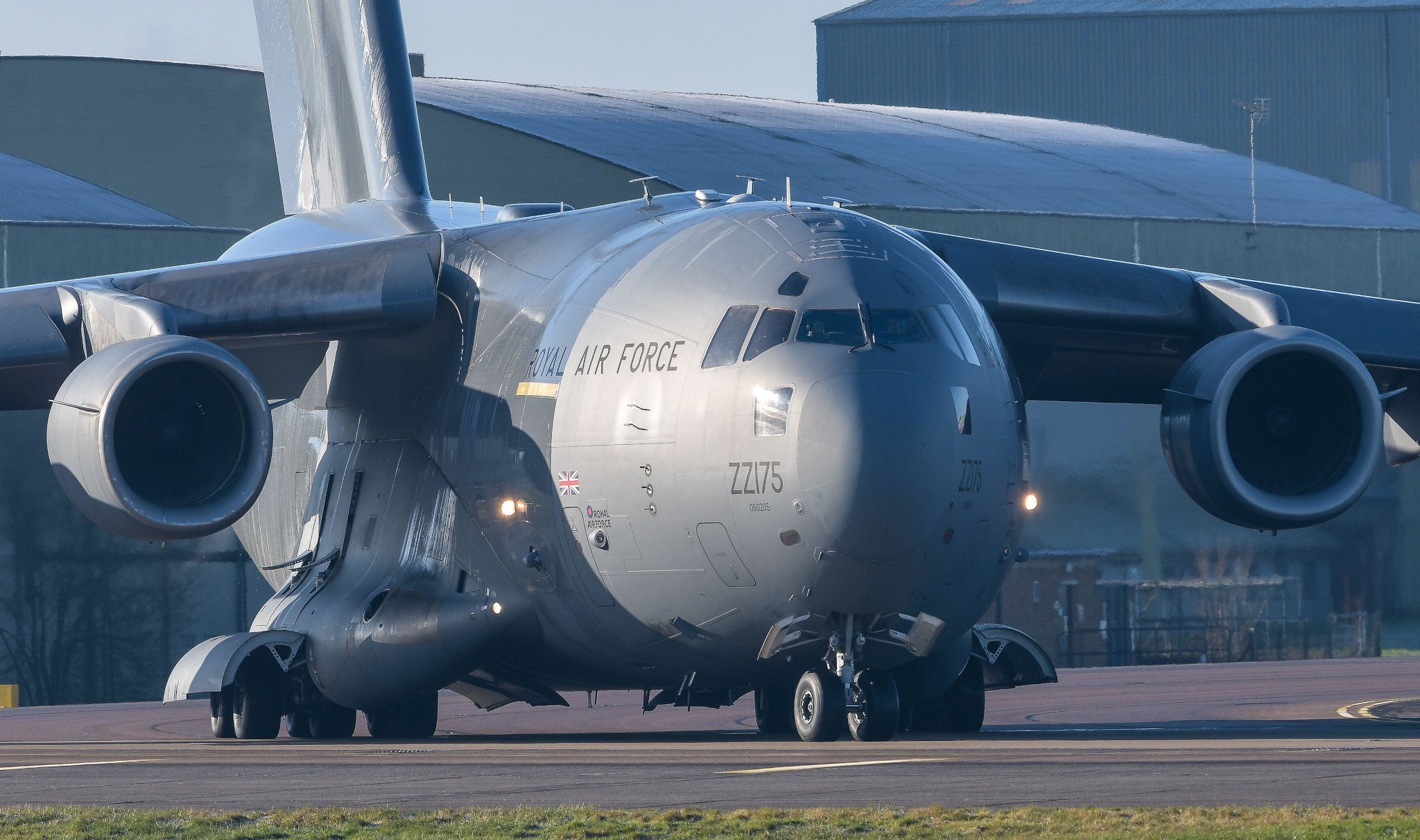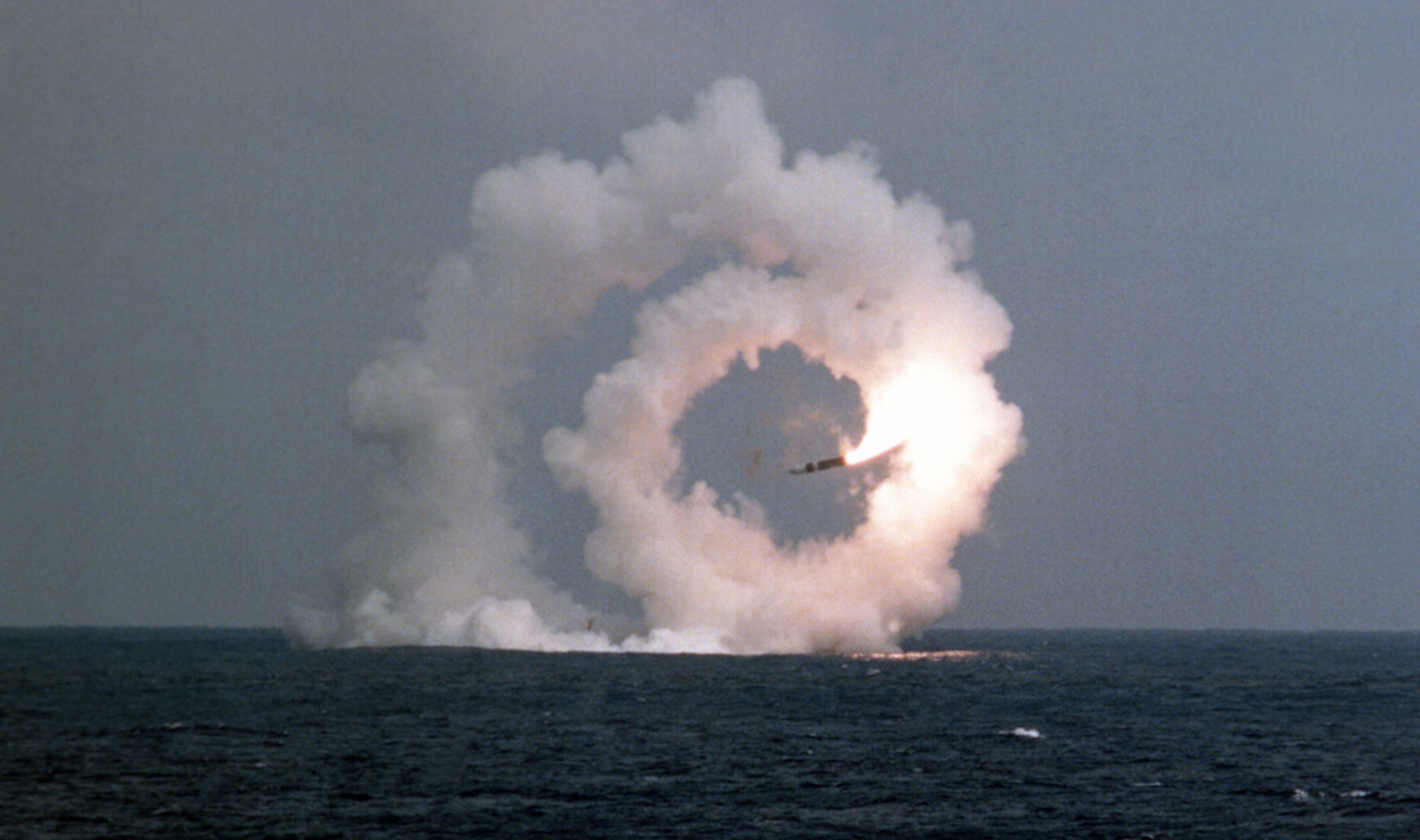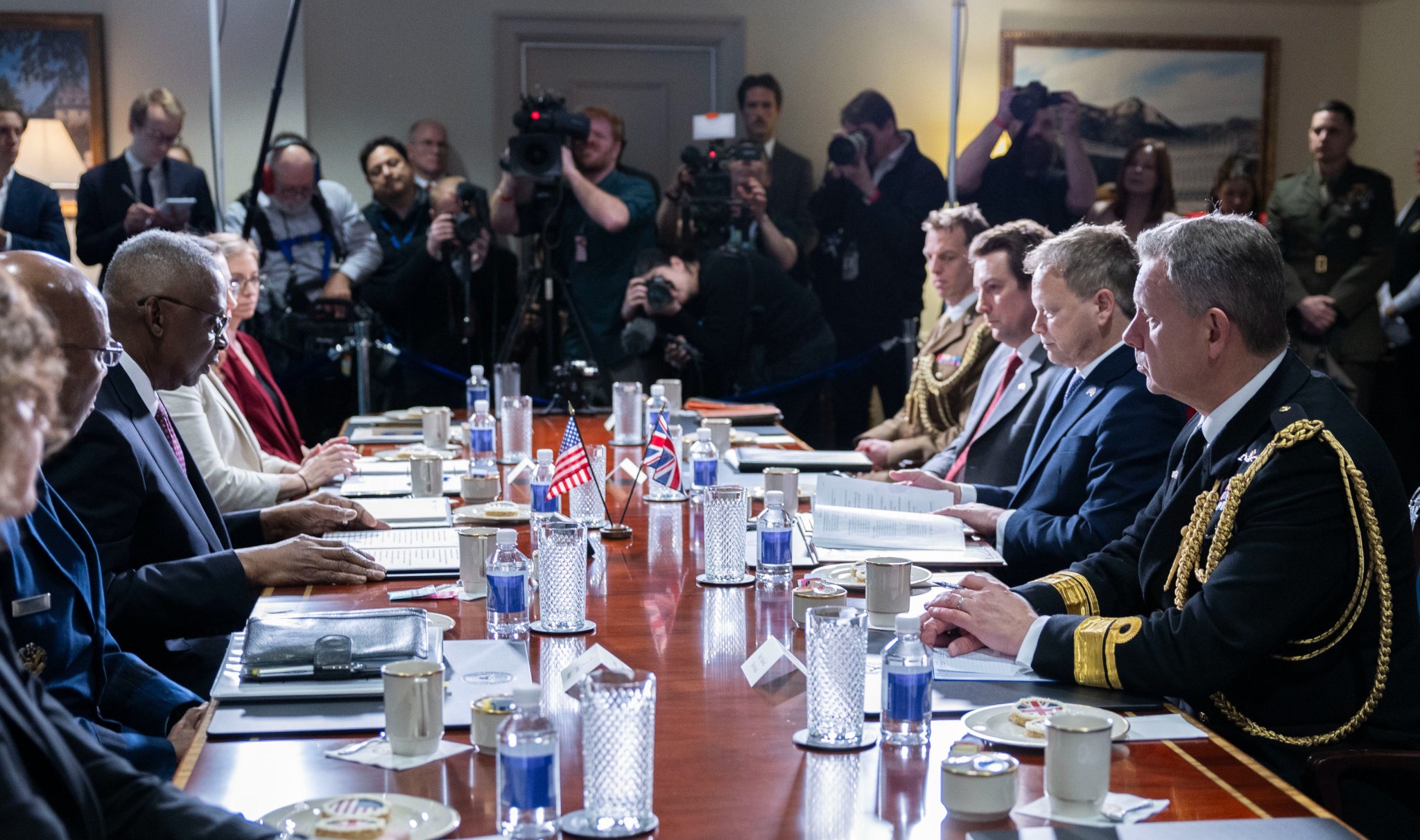British military aircraft regularly carry highly radioactive material across the Atlantic to one of the RAF’s largest bases on flights vital to the Trident nuclear weapons system, according to new research, Declassified UK can reveal.
The little-known flights are a lifeline sustaining the ‘special relationship’ embodied in the secretive US-UK Mutual Defence Agreement due to be renewed later this year without the need for any parliamentary scrutiny or even approval.
At least ten of the special round trips between RAF Brize Norton in Oxfordshire and US military bases, usually by large RAF C-17 Globemaster transport aircraft, take place every year, according to Nukewatch, which monitors traffic in nuclear weapons and their components.
In a joint report with Nukewatch, the Campaign for Nuclear Disarmament (CND) told Declassified: “The UK cannot claim to have an independent nuclear weapons system when it is so reliant on the US for technical information and nuclear materials, including these special nuclear flights.
“By having such a direct involvement in Britain’s nuclear weapons technology, the US exercises significant leverage over the UK’s foreign and defence policy”, it added.
The RAF planes fly from Brize Norton either over the Cotswolds and the Bristol and Cardiff areas before crossing the Atlantic, or over Gloucestershire and the South Wales valleys, heading out to sea over Swansea and the Gower peninsular.
Their destinations include Kirtland Air Force Base in Albuquerque, a convenient location for access to US nuclear laboratories and manufacturing plants in New Mexico and northern Texas, and McGhee Tyson Airport, Knoxville, close to nuclear sites in Tennessee.
Radioactive
Although the MoD does not reveal the exact nature of the cargoes, Nukewatch says it can conclude on the basis of its investigations that material in RAF aircraft returning to Britain includes tritium, a radioactive isotope of hydrogen which is used in nuclear warheads.
Tritium has a relatively short half-life of twelve years, and thus requires constant replacement. Britain does not have facilities to produce tritium and needs to replenish supplies from the US.
“The RAF cargo also includes highly enriched uranium (HEU) used for nuclear submarine reactor fuel and warhead components”
The RAF cargo also includes highly enriched uranium (HEU) used for nuclear submarine reactor fuel and warhead components. Uranium fuel is burnt up in submarine reactors and cannot be reused.
Britain does not have facilities to enrich uranium to the high levels used in submarine reactor fuel and so either HEU must be purchased from the US, or low enriched uranium must be sent to the US for further enrichment.
Plutonium for warhead components has been exchanged with the US in past decades, according to Nukewatch. The cargo is also likely to include security-classified non-nuclear warhead components such as arming, fusing and firing systems as well as radioactive materials and equipment used in nuclear security exercises.
Refusing details
The US and Britain cooperate closely on security programmes and exercises designed to combat nuclear terrorism.
Some RAF cargoes are loaded on to convoys that transport radioactive and other nuclear weapon-related material loads to and from the Atomic Weapons Establishment (AWE) in Aldermaston, Berkshire, and other sites involved in Britain’s nuclear weapons programme.
Ministers have refused to give details of the types and quantities of radioactive materials transported in special flights on national security grounds.
The MoD says the transport of DNM (defence nuclear materials) is carried out in accordance with stringent safety regulations. In more than 50 years transporting DNM in Britain, there has never been an incident that has posed a radiation hazard to the public or to the environment, says Nukewatch quoting the MoD.
The MoD adds that the RAF Immediate Response Force, equipped and trained to identify radiological hazards, are “at a state of readiness” when the aircraft enter British airspace. Brize Norton has a nuclear accident response team equipped to monitor radiation in the event of an aircraft accident.
However, Nukewatch and CND argue that an objective assessment of the level of risk to people living under the flight path cannot be made in the absence of official information on the type of radioactive material the flights are carrying and tests.
Such tests would determine how to respond to the impact of a high altitude or high velocity crash and any subsequent fire that would be likely to scatter radioactivity over a wide area.
‘Astral Bend’
Although the chances of such an accident occurring may be low, the consequences would be high, the report says. Plutonium and uranium are flammable metals which burn easily if exposed to heat, creating a plume of radioactive smoke that is easily ingested.
Tritium is a radioactive gas which is also flammable and can easily be incorporated in water and organic compounds, in which form it may be ingested. All three materials are carcinogenic.
The MoD undertakes annual exercises, code-named ‘Astral Bend’, to test the emergency response to an accident involving an RAF aircraft transporting special nuclear materials. Emergency responses would be tightly controlled by the MoD, with the police in charge of civilian emergency services.
Separate assessment reports of Astral Bend exercises have been released under the Freedom of Information Act. They show that despite their preparations, the authorities are not always able to respond well because of the complex and hazardous nature of any such accident.
Following a 2006 exercise, a temporary ban was imposed on highly enriched uranium flights at Brize Norton. Shortfalls in radiation field monitoring, radiation safety procedures, and medical treatment of casualties were identified by the MoD’s internal nuclear watchdog, the Defence Nuclear Safety Regulator (DNSR), as areas requiring improvement.
Risk of contamination
An Astral Bend exercise in 2010 rehearsed the response to an accident involving a US Air Force plane which had crashed and caught fire, damaging nuclear weapons on board and spreading radioactive contamination around the crash site.
Assessors concluded that, had there been a real emergency, civilian personnel would have been at risk from explosions and radioactive contamination. This was because the MoD nuclear accident response organisation team “did not emphasise the hazards adequately” and gave “insufficient priority” to liaison with emergency services.
“Mistakes made by emergency services would have led to “avoidable deaths” in a real-life situation”
Difficulties experienced with two subsequent exercises, in 2011 and 2012, were so severe that the MoD was forced to carry out “an overarching, fundamental review” of arrangements for handling nuclear weapons accidents.
During an exercise at the Caerwent military training area in South Wales mistakes made by emergency services would have led to “avoidable deaths” in a real-life situation, according to exercise assessments.
The fire service was heavily criticised by the DNSR for refusing to allow ambulance teams to take away seriously injured people until they had been decontaminated.
The confusion and delays observed during Astral Bend exercises raise questions about whether the MoD’s nuclear safety arrangements are capable of keeping the public, emergency responders, and MoD personnel safe, the report says.
Experience suggests that emergency arrangements would be totally inadequate to protect members of the public.
Maintaining Trident
The MoD has told Nukewatch in response to a Freedom of Information Act request that releasing the report on the most recent Astral Bend exercise would allow potential adversaries to gain a greater operational understanding of air transport involving defence nuclear materials and emergency response measures.
The release of operational details would make future air transport operations “vulnerable to the potential interception by hostile actors”, which would endanger the safety of the wider public, the MoD argued.
Significantly, it added that providing the information would prejudice its ability to maintain the UK’s Continuous At Sea Deterrence (CASD) – a reference to patrols by Britain’s Trident submarines.
“Special nuclear flights are an underreported but critical aspect in maintaining Britain’s nuclear power status”
“There is no wider public interest in reducing the effectiveness of the nuclear deterrent which is the ultimate guarantee of our national security”, the MoD told Nukewatch.
Nigel Day of Nukewatch said: “Ministry of Defence nuclear flights pose a significant risk to communities across the UK should there be an accident. Far from keeping us safe, as the government claims, nuclear weapons actually make things far more dangerous for all of us.”
Kate Hudson, general secretary of the Campaign for Nuclear Disarmament (CND), told Declassified: “Special nuclear flights are an underreported but critical aspect in maintaining Britain’s nuclear power status. How can we truly have an independent foreign and defence policy if what is vaunted as the cornerstone of our supposed security relies so heavily on another state?
“It’s time to move away from the current wasteful and dangerous addiction to nuclear arms and to move towards a real defence policy which secures peace rather than deploying weapons of mass destruction.”
Hudson added: “We are also extremely concerned about the safety risks posed by these flights and the poor performance during exercises to prepare authorities for a nuclear accident. Of course, instead of acknowledging these risks and moving towards disarmament, the British government cuts down on transparency by blocking the release of reports on its most recent training exercises.”





